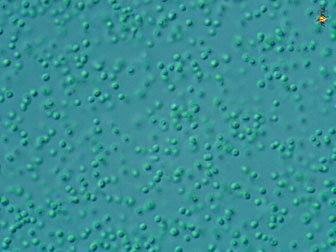 And on the topic of geology, check out some of the press on the newest members of the CCS Bio team, Professor Dave Valentine of Earth Sciences , has been getting.
And on the topic of geology, check out some of the press on the newest members of the CCS Bio team, Professor Dave Valentine of Earth Sciences , has been getting.Listen to a report on KCLU: A team of researchers has found a group of what are known as "asphalt volcanoes"...some up to 65 feet high...on the ocean floor off the Santa Barbara County coastline.
Or read about it on the National Geographic website or the NSF website.
This is relevant to biology for several reasons. First, in terms of methane production and the creation of 'dead zones':
Eruptions of the California mounds might have once spewed enough methane to dramatically boost populations of methane-eating marine bacteria.
These bacteria depleted the water's oxygen, creating a giant "dead zone" in the Santa Barbara basin that was lethal to most marine life.and secondly in terms of creating hard substrates for colonization by living organisms:
Asphalt mounds in general help create environments for marine life that might not otherwise exist.
"Processes that produce hard substrates in the deep ocean are rare. ... Generally speaking, the deep ocean is a muddy place," MacDonald said.
"I think it's really cool that there's this other process that we didn't really know about before that, at least in some places, is making pretty extensive hard bottoms for animals to colonize."